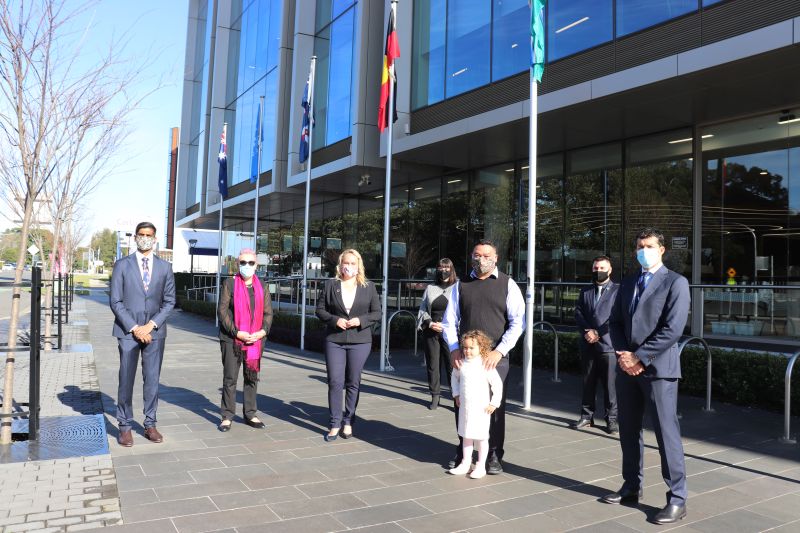The Morrison Government is upgrading its national response to COVID-19 outbreaks with increased weekly payments for households, and boosting business cash flow to get them through extended lockdowns.
The new national arrangements have been developed following close cooperation between the Commonwealth and NSW governments to ensure additional support is targeted and rolls out as quickly as possible under a new cost sharing agreement.
The support package will see an increase in the COVID-19 Disaster Payment from week four of a lockdown and a 50/50 cost sharing arrangement between the Commonwealth and the NSW Government for a new and expanded small to medium business support package, implemented and administered by NSW.
This level of support will apply nationally to any state or territory that experiences an extended lockdown beyond week three following the declaration of a Commonwealth hotspot.
COVID-19 Disaster Payment
The Commonwealth will enhance and expand the support available to NSW and other states that experience an extended lockdown.
Specifically, the Commonwealth will:
- From week four of a lockdown because of a Commonwealth declared hotspot, the COVID-19 Disaster Payment will increase from $500 to $600 each week if a person has lost 20 hours or more of work a week or $325 to $375 each week if a person has lost between 8 and 20 hours of work.
- Make the COVID-19 Disaster Payment a recurring payment for approved recipients for as long as the Commonwealth declared hotspot and lockdown restrictions remain in place. This will remove the need for recipients to re-claim for each seven day period of a lockdown.
- Amend the COVID-19 Disaster Payment so that a person would be eligible for the payment, including where they are still working, provided they have lost more than 8 hours or a full day of work.
From 18 July 2021 the COVID-19 Disaster Payment will be available to those outside Commonwealth declared hotspots in NSW that meet the criteria for the payment.
The NSW Government will fund any payments outside a Commonwealth declared hotspot, with the Commonwealth continuing to fund payments to recipients in a Commonwealth declared hotspot.
This arrangement will be available to other states and territories for future lockdown as a result of a Commonwealth declared hotspot .
Information about how to apply for COVID-19 Disaster Payment can be found on the Services Australia website at www.servicesaustralia.gov.au/individuals/services/centrelink/covid-19-disaster-payment
Small and medium business support payments
From week four of the lockdown, the Commonwealth will fund 50 per cent of the cost of a new small and medium business support payment to be implemented and administered by Service NSW.
Eligible entities will receive 40 per cent of their NSW payroll payments, at a minimum of $1500 and a maximum of $10,000 per week.
Entities will be eligible if their turnover is 30 per cent lower than an equivalent two week period in 2019.
The new small to medium business support payment will be available to non-employing and employing entities in NSW, including not for profits, with an annual turnover between $75,000 and $50 million.
To receive the payment, entities will be required to maintain their full time, part time and long term casual staffing level as of 13 July 2021.
For non-employing businesses, such as sole traders, the payment will be set at $1,000 per week.
Businesses can register their interest from 14 July 2021 at www.service.nsw.gov.au
The assistance will cease when current lockdown restrictions are eased or when the Commonwealth hotspot declaration is removed.
Commonwealth business tax relief
The Commonwealth will also provide additional support through the tax system, by:
- Making NSW small business grants, including the new small business payments, tax exempt.
- Providing administrative relief to NSW taxpayers facing hardship, including reduced payment plans, no interest charged on late payments and varying instalments on request.
Mental health support
The Commonwealth and NSW governments will deliver a $17.35 million mental health support package for NSW including:
- A boost for crisis and mental health services including for Lifeline, free 24 hour support via Sonder and counselling for perinatal depression and anxiety
- Funding for mental health support for vulnerable and culturally and linguistically diverse communities
- Assistance for young people through headspace, Kids Helpline and the Butterfly Foundation
The increase in support for states and territories experiencing extended lockdowns is part of the Government’s plan to secure Australia’s recovery from the COVID-19 recession.
The support comes in addition to existing Commonwealth programs such as HomeBuilder, the expanded instant asset write off, additional support for retaining and training apprentices as well as record support for mental health and women’s safety announced in the Budget.
As the pandemic evolves, so too does the Government’s support for Australians across the country.

